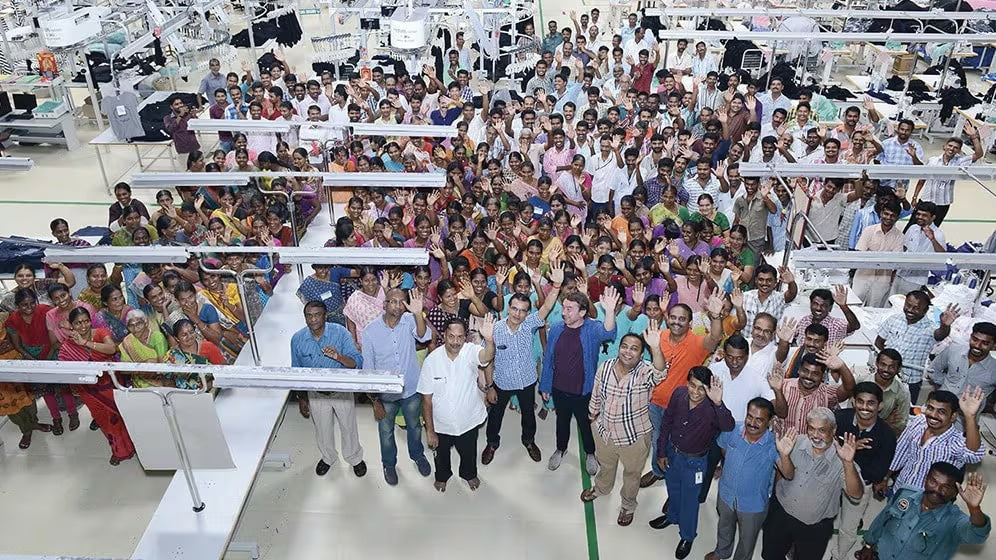A couple of years ago I learnt to sew. I borrowed a machine from a housemate, watched a bunch of YouTube videos and made a terrible tote bag. Like really bad.
A few weeks later I sold my first bag. It wasn’t without its trials, but I learnt to sew. Just. And for a couple of months I spent my days in my little shipping container making tote bags for customers. To everyones surprise, they sold pretty well.
But I was slow. Really slow. They took 3 hours to make. The dream was to eventually make a jacket. I tried that once. Needless to say, I haven’t tried again.

Fortunately, I'm not sewing your T-shirt. Instead the people making them are true professionals. In the same way virtuosos relentlessly prepare to hit every single note on an old 9ft concert grand for Fantaisie Impromptu*, our sewing team have spent serious hours behind the machine. Mastering their craft. They buzz through these tees with ease.
*A piece by Chopin which requires far too many notes to be played in an unnaturally short space of time.
But before we can even think about sewing, we've got to grow the cotton (which takes around 6 months).
Our cotton is grown in a city called Indore in Central India. It’s a big city. 2 million people. 500 square miles. It’s India’s most vegetarian city (49% of the population). It’s the place where metal music was introduced to the people of Central India, by the band Nicotine. And the birth place of Danish H. Sheikh, India’s first charisma coach. Who even knew that was a thing?

The plants do their magic and produce fluffy balls of cotton. The cotton is picked and ginned (a process where the seeds are separated from the fluff). Then spun into big spools of yarn.
Next, they take an 1,000 mile scenic tour to Tiruppur in Southern India. Tiruppur is the garment producing capital of India. And it's home to the wind and solar powered factory where our T-shirts are made.

The factory take the yarn and use big-ass knitting machines to turn them into our super soft jersey. At this point the cotton is ready for the masters. They take metres and meters of fabric and turn them into thousands of T-shirts, ready for a boat trip to the UK where they’ll arrive at your door.
P.S. Here's a 5 year-old playing Fantaisie Impromptu. Unbelievable.


